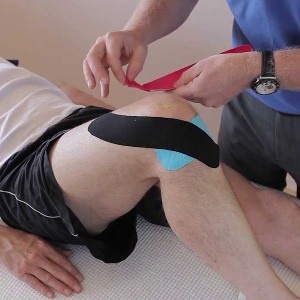
Description
This term refers to a group of conditions, all of which can cause pain at the front of the knee. It was previously called chondromalacia patellae.
It is more commonly found in:
- young women
- persons with previous patellar (kneecap) dislocation
- athletes and ballet dancers
- persons with degeneration of the cartilage behind the kneecap
Causes
Any anatomical abnormality or condition, causing instability/excess wear and tear of the kneecap, can produce the syndrome, for example:
- bursitis of the knee
- tight ilio-tibial band syndrome
- tight hamstring or calf muscles
- very flat, or very arched feet (produce abnormal strain on the knee)
- weakness of muscles around the knee
- softening of the kneecap cartilage (chondromalacia)
- previous injury to the kneecap
- arthritis of the patella
Symptoms and signs
Classical symptoms are:
- pain in the front section of the knee
- pain is worse with physical activity or prolonged sitting
- a grating sound may be heard when the knee is bent
- sometimes there is associated swelling
Examination of the knee may find a hypermobile kneecap which can easily be moved, even sideways, to produce the pain. Often a grating sensation can be felt during movement of the knee, and pressure on the patella is painful.
Diagnosis
The diagnosis is usually straightforward and no special tests are needed. If there is any doubt, specially angled X-rays of the knee may show arthritis.
Treatment
Rest is important, avoiding any activity or specific movements, known to produce pain in the patient.
Non-steroidal anti-inflammatories help to relieve pain.
Physiotherapy to strengthen the muscles around the knee should start as soon as pain subsides.
Surgery may be considered in some cases where poor alignment of the patella is a contributing factor.
Outcome
Most patients respond to well to conservative treatment with rest, pain relief and physiotherapy. The few patients who need surgery have a successful outcome in up to 90% of cases.
Read:
Stilletos physically alter legs




 Publications
Publications
 Partners
Partners














